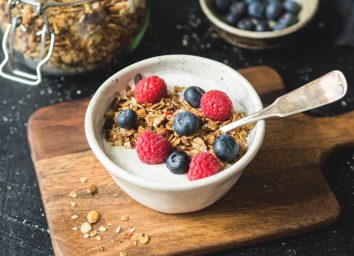14 Tips That Drive the Most Belly Fat Loss for Women, Say Dietitians
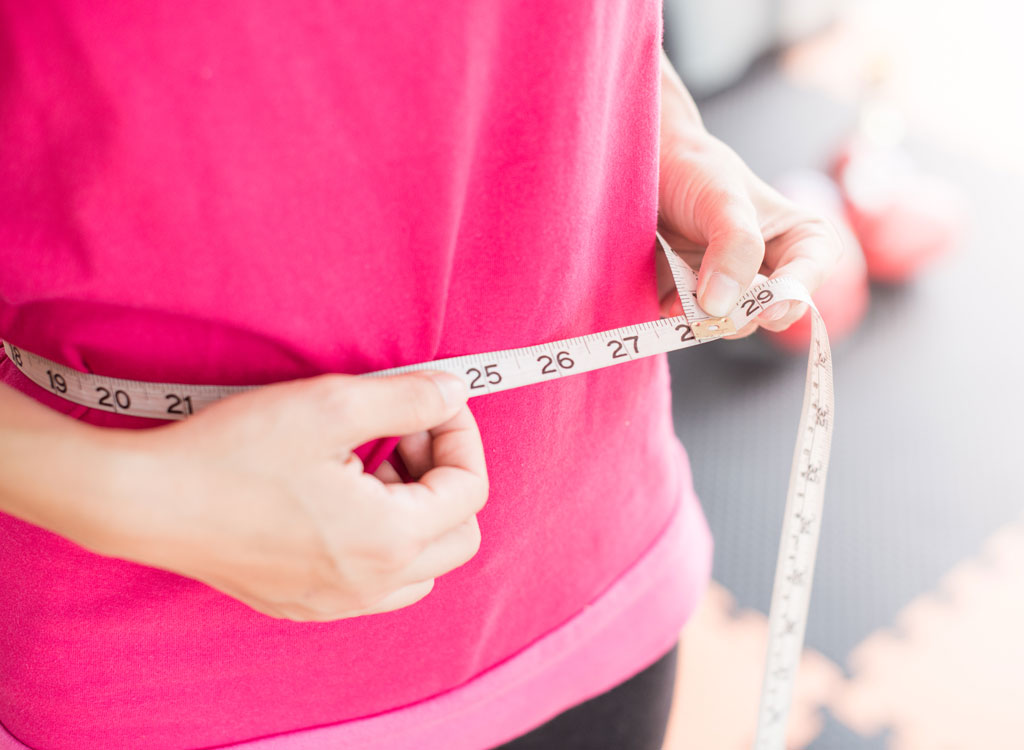
Belly fat is often the first to accumulate when we gain weight and the last to be burned off. The belly fat bulge can be even more frustrating for women, who often find that no matter how frequently they hit the gym or how drastically they change their eating habits, there are always at least a few pounds in their midsection that stubbornly remain. Additionally, the quest to lose belly fat only gets more difficult as women age.
"Women tend to pack on more belly fat as they get older, especially after reaching menopause," says Megan Wong, RD, a registered dietitian working with AlgaeCal. "As levels of the hormone estrogen drop, body fat patterns shift from the typical 'pear-shaped' female figure to the 'apple-shaped' figure more frequently associated with men."
And not only is belly fat frustrating if you're trying to fit into your favorite pair of jeans, but it also has the potential to be very detrimental to women's overall health. "Visceral fat is metabolized by the liver and ultimately turns into blood cholesterol, which collects in the arteries, eventually narrowing them. These clogged arteries can eventually lead to angina, heart disease, heart attack, stroke, and other cardiac symptoms," explains Dr. Candice Seti, PsyD, CPT, CNC, a licensed clinical psychologist, a certified personal trainer, and a certified nutrition coach. "Visceral fat is also responsible for the release of hormones that trigger insulin resistance, Type 2 diabetes, systematic inflammation, heart disease, and other cardiovascular diseases."
But don't be bummed about your belly fat. Armed with these expert-recommended tips from registered dietitians, nutritionists, and other medical professionals, you can lose the belly fat. Read on, and for more on how to eat healthy, don't miss Simple Ways to Start Losing Weight Immediately, According to Science.
Focus on Foods That Are High in Protein
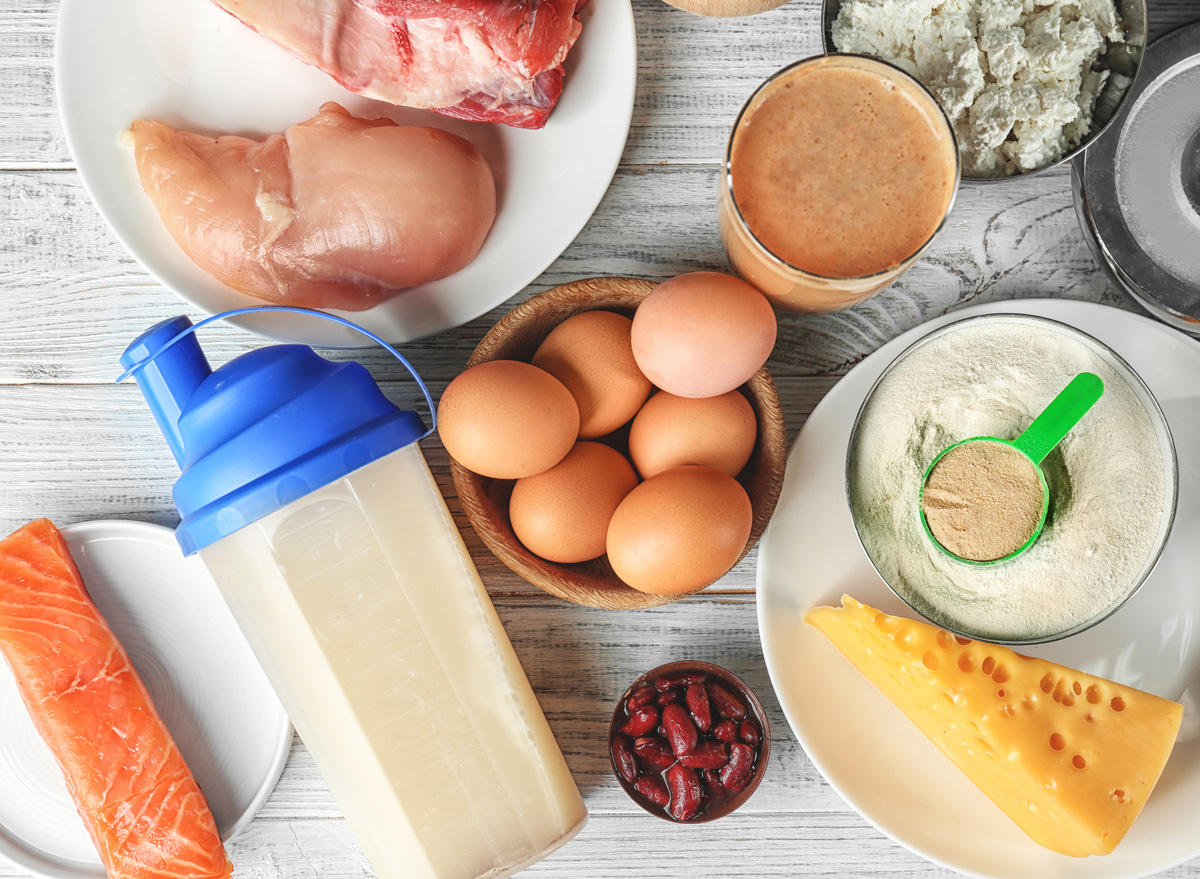
"Protein-rich foods like fish, chicken, and beans, are ideal to reduce belly fat and also help with weight loss," notes Lisa Young, PhD, RDN, a registered dietitian nutritionist, author of Finally Full, Finally Slim, and an adjunct professor of nutrition at New York University. "And women have a harder time losing weight than men." Protein can be a belly fat-blasting ally for women because it helps you feel fuller for longer since it takes more time to break down. Additionally, since protein is slightly harder to digest, your body uses more calories in the process, which can contribute to a flatter midsection.
Cut Out Added Sugars

"Most people don't realize that sugar often ends up getting stored as fat. When you eat sugar, your body will use it as an energy source, if needed, and store the rest as fat; more often than not, we consume more [sugar] than we need," explains Wong. "To avoid added sugars, get familiar with reading nutrition labels. Common culprits that tend to be high in added sugars are flavored yogurts, breakfast cereals, energy drinks, iced teas, granola bars, and flavored nut milks. Take a look at ingredients lists as well. Added sugars can be listed as syrups, molasses, or words ending in 'ose' — like fructose, glucose, maltose, sucrose or dextrose."
Increase Your Good Fats
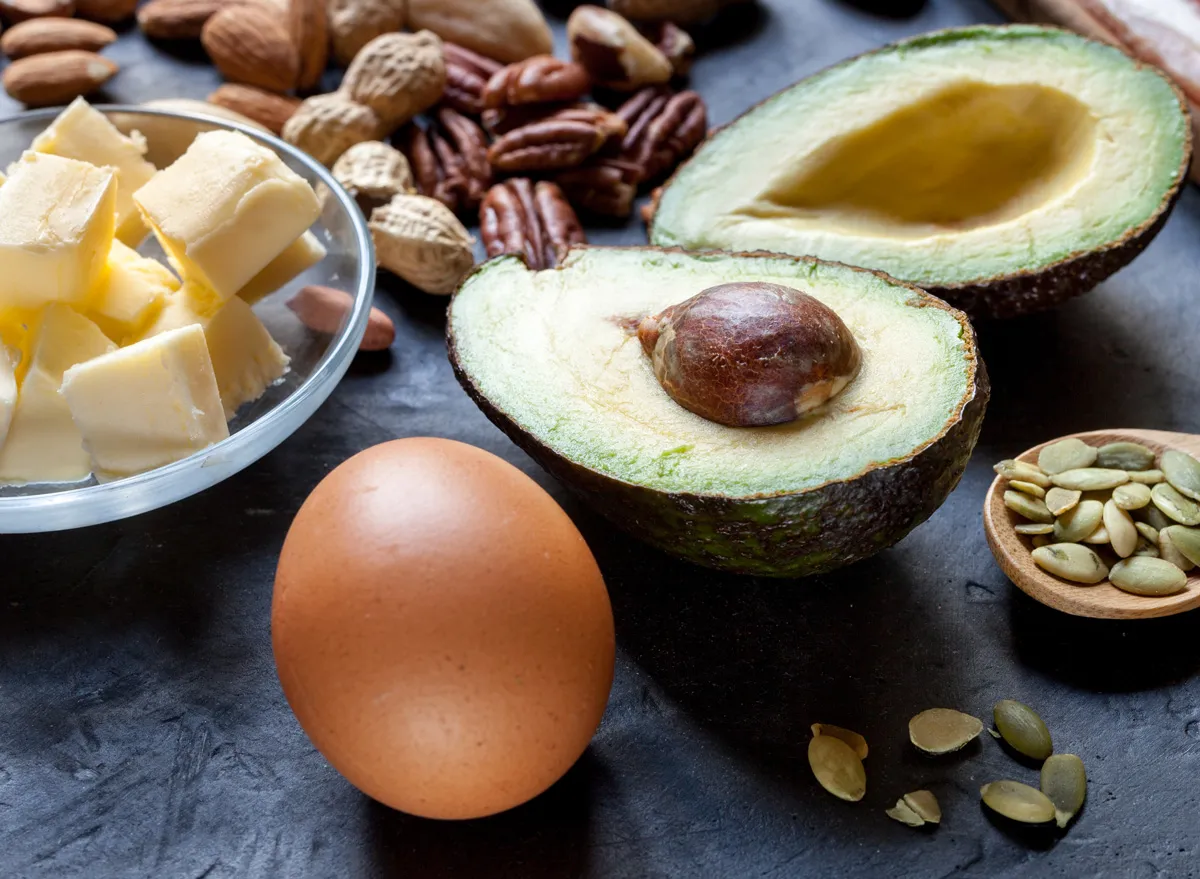
"Yup, I said increase! Healthy fats such as nuts, seeds, olive oil, and avocado can help normalize your weight and balance your blood sugar – both of which help combat the development of visceral fat in the abdomen," says Seti. And this is especially true for women. Looking to blast belly fat? "Include a portion of healthy fats with every meal."
Try Physical Activities That Engage Your Waist and Abs

Since women tend to gain weight around their midsection after menopause, doing exercises that specifically engage your waist and abs can help efficiently target that fat. "I recommend physical activities that center on moving the waist, twisting and using your core," notes Dr. Anna Cabeca, DO, who is triple-board-certified in gynecology and obstetrics, integrative medicine and anti-aging and regenerative medicine. "Personally, I'm a big fan of boxing. There's a lot of rotation at the waistline when you're throwing punches, or hitting a bag, so while it helps by releasing frustration and detoxing, it also helps your belly."
Limit or Avoid Foods That Make You Bloat
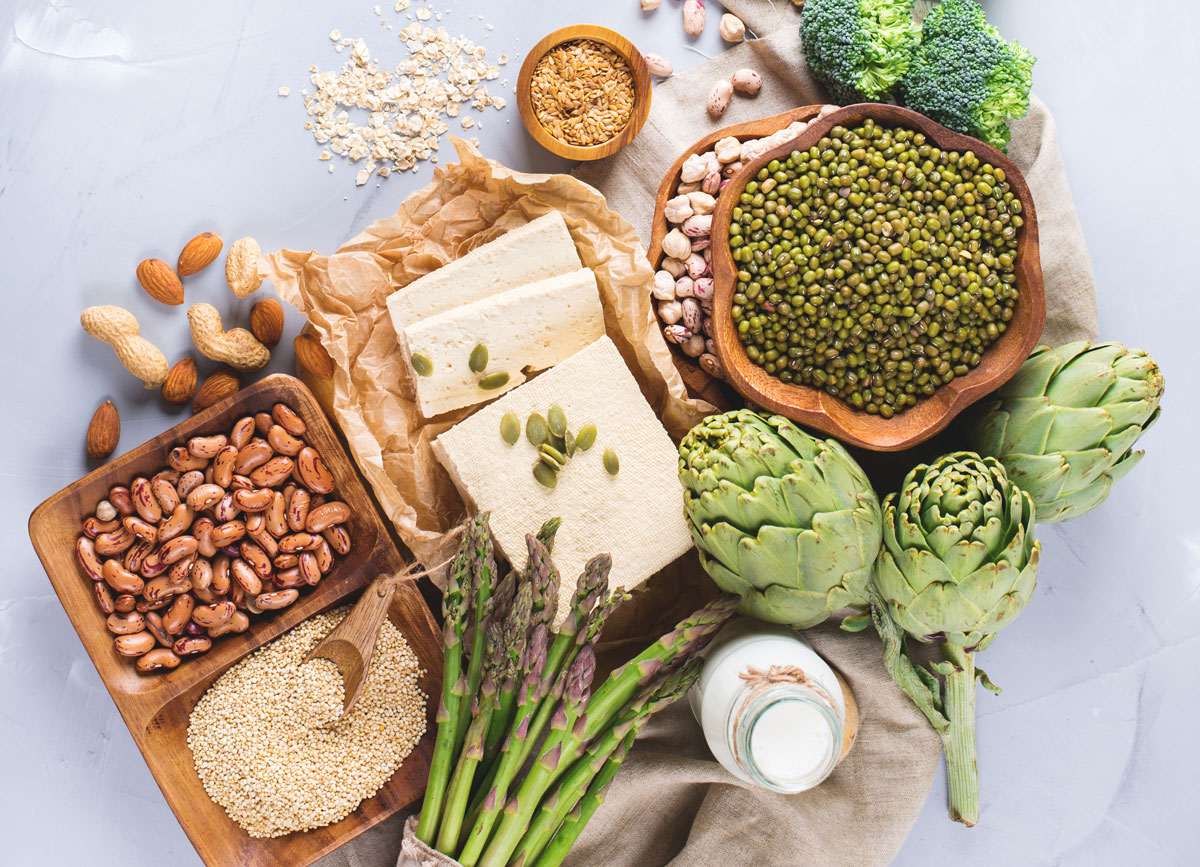
Though this may sound obvious, it can have a substantial positive impact on women's loss of belly fat. "When you're bloated, your belly feels bad and may look swollen," says Amanda A. Kostro Miller, RD, LDN, who serves on the advisory board for Fitter Living."Bloating trigger foods vary by individual, however, FODMAPs (Fermentable, Oligosaccharides, Disaccharides, Monosaccharides, and Polyols) can cause bloating, even if you're on a 'healthy' diet. FODMAPs are present in healthy fruits, vegetables, and legumes. Even though all fruits/veggies are nutritious, some are high in FODMAPs and may cause distress like bloating, gas, diarrhea and abdominal pain. A low FODMAP diet can make you feel better if you have issues with high FODMAP foods."
Relieve Constipation
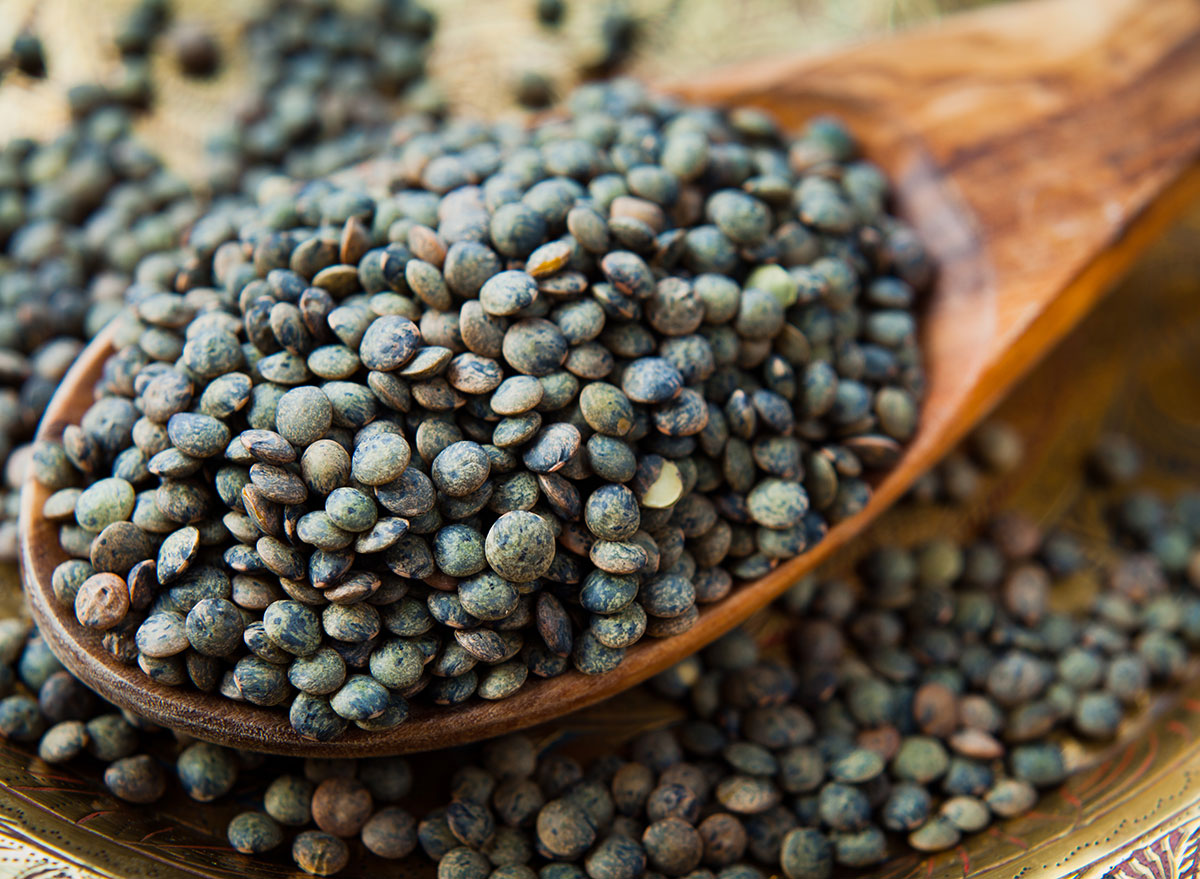
"If you're chronically constipated, this can make your belly area full and bloated. Make sure you consume enough fiber and also enough fluid during the day," advises Kostro Miller. "Too much fiber without more fluid can cause constipation too."
Additionally, according to Young, foods high in soluble fiber — like oatmeal, carrots and legumes — may help fight belly fat. "These are particularly good for women as they may also help you feel full and assist with weight loss," she explains.
Control Your Cortisol Levels

"Chronically high levels of cortisol, the stress hormone, can actually lead to increases in your abdominal fat stores," says registered dietitian nutritionist SaVanna Shoemaker, MS, RDN, LD. "That's why it's important to find ways to manage your stress, to help stop that cycle of depositing more fat stores on your belly. You may even want to talk to a healthcare professional about having your cortisol level checked if you are chronically stressed and struggling to lose fat."
While both men and women produce cortisol, a 2009 Swedish study found that women can have significantly higher levels of certain types of cortisol than men.
Cut Out (or Cut Back) on Alcohol

Drinking too much alcohol has been linked with increased belly fat," says Young. "To reduce your waist, women should drink alcohol in moderation or abstain. Alcohol can also increase a woman's risk for breast cancer, so limiting alcohol is a win-win."
Add More Resistant Starch to Your Diet

"Resistant starches, such as potatoes, lentils, and beans, actually help remove visceral fat from women's bodies," says Seti. "Because of the way these carbohydrates are processed in the body, they actually increase your calorie burn and make you feel fuller so you eat less throughout the day."
Steer Clear of Endocrine Disruptors

"Avoid foods or products that have endocrine disruptors, such as parabens," says Cabeca. "Skincare products, creams, shampoos, and lotions that have parabens will add an estrogen load in your body that can increase belly fat in women." This is because extra estrogen leads to excess fat storage, which is especially pronounced in the belly and butt areas in women.
According to a 2020 German study, even pregnant women who use parabens could increase the risk of their children being overweight.
Reduce Your Sodium Intake
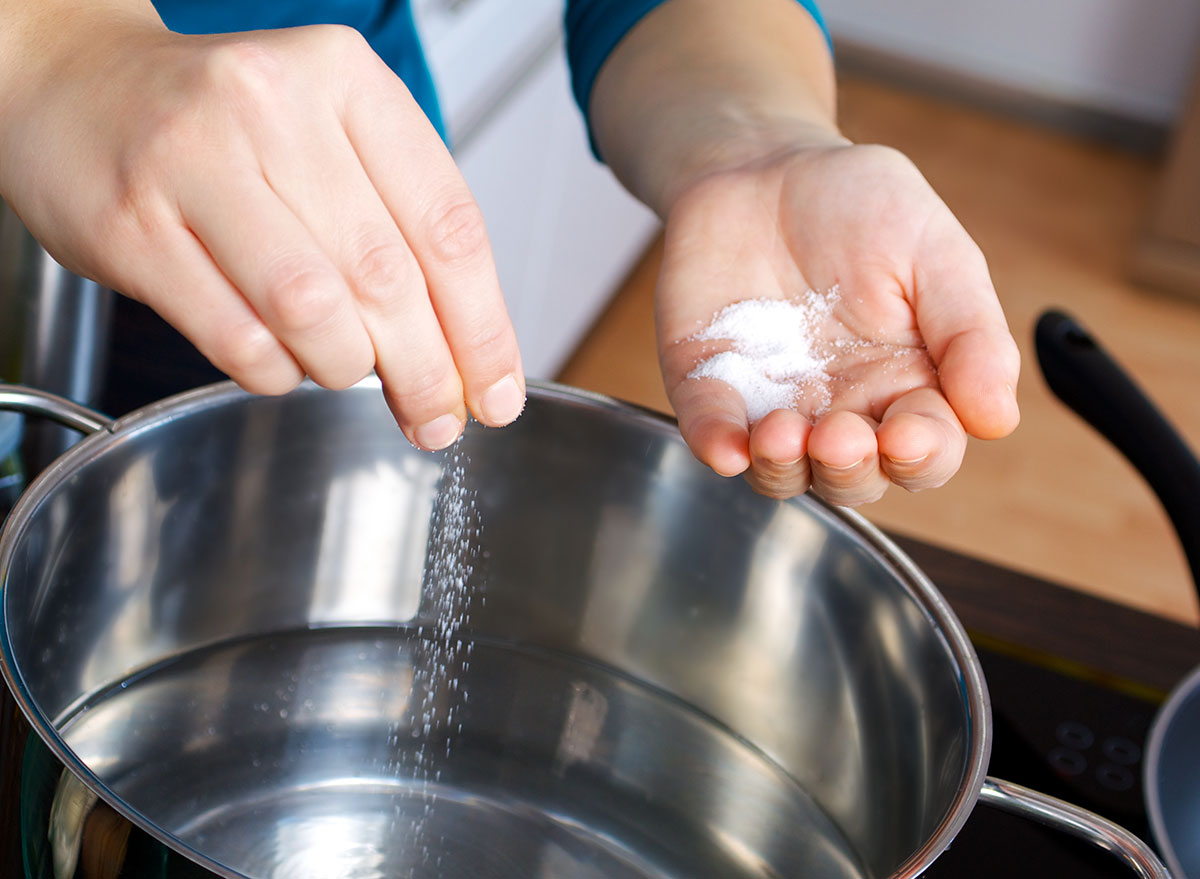
"This is especially important for women since our hormones can cause frequent water weight fluctuations. Where the sodium goes, water will follow," Kostro Miller explains. "When you consume a lot of sodium (a component of salt) — which most Americans do — our body adjusts accordingly by quenching our thirst and/or holding onto the fluid we already have in our body. When we decrease overall sodium intake, our body does not feel the need to hold onto lots of water, and the water we drink will hydrate us and then be flushed out."
Related: 25 Foods High in Sodium You Should Watch Out For
Start Strength Training

"Putting more muscle on your body is the most effective way to combat body fat. Extra muscle fibers change your body composition over time," says Seti. "Muscle tissue is active and helps burn more and increase metabolism throughout the day, ultimately combating the development of visceral fat around your organs." To get going, Seti suggests women start with 5 to 10 minutes of weight lifting a day.
Adopt the Keto-Green Lifestyle
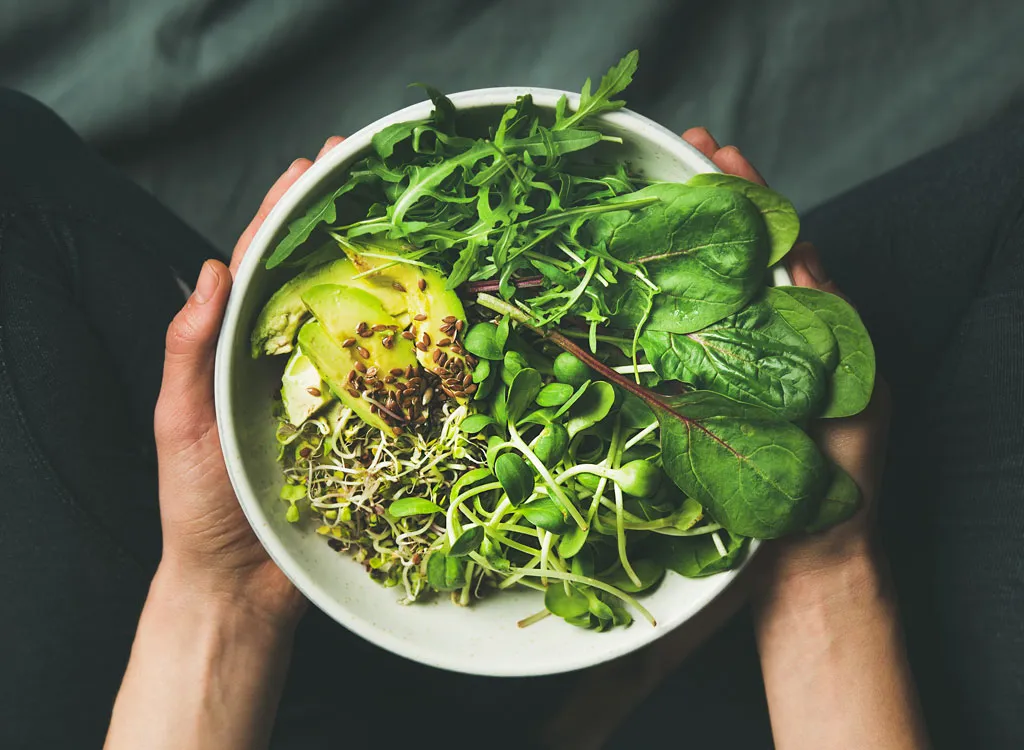
When it comes to diet changes women can make to eliminate body fat, Cabeca is a fan of this trendy, yet effective combo. "Incorporate lots of dark leafy greens such as broccoli sprouts and kale into your diet. These greens are rich in nutrients to help detoxify estrogen," she explains. "Also include healthy fats that you can find in salmon or oysters. Divorce from sugar and dairy, and minimize carbs. Avoid drinking more than 4-6 ounces during your meal, chew your food as it will force your natural digestive enzymes to work, burn the calories and the fat, and you will actually eat less."
She adds: "We also want to include cruciferous vegetables because that helps detoxify estrogen diindolylmethane (dim), and the sulforaphane that are abundantly found in the cruciferous vegetables help with estrogen detoxification."
And Stop Yo-Yo Dieting

While yo-yo dieting is a common practice among women, Seti warns it actually does more harm than good, especially where belly fat is concerned. "A history of yo-yo dieting is actually a risk factor for building abdominal fat. When we lose weight, we tend to start at the top and bottom of our bodies, leaving visceral fat in the abdomen for last. Some don't ever get to the point of losing it there," she says. "Plus, when we gain the weight back, the abdomen is the first place we add it. So the effects of yo-yo dieting ultimately increase visceral fat in our midsection. Stop the yo-yo and make some lifestyle changes that allow you to eat well all year. Focus on veggies, lean protein, and good fats at every meal!" To help you on your way, check out 26 Easy Ways to Keep The Weight Off, According to Dietitians.

